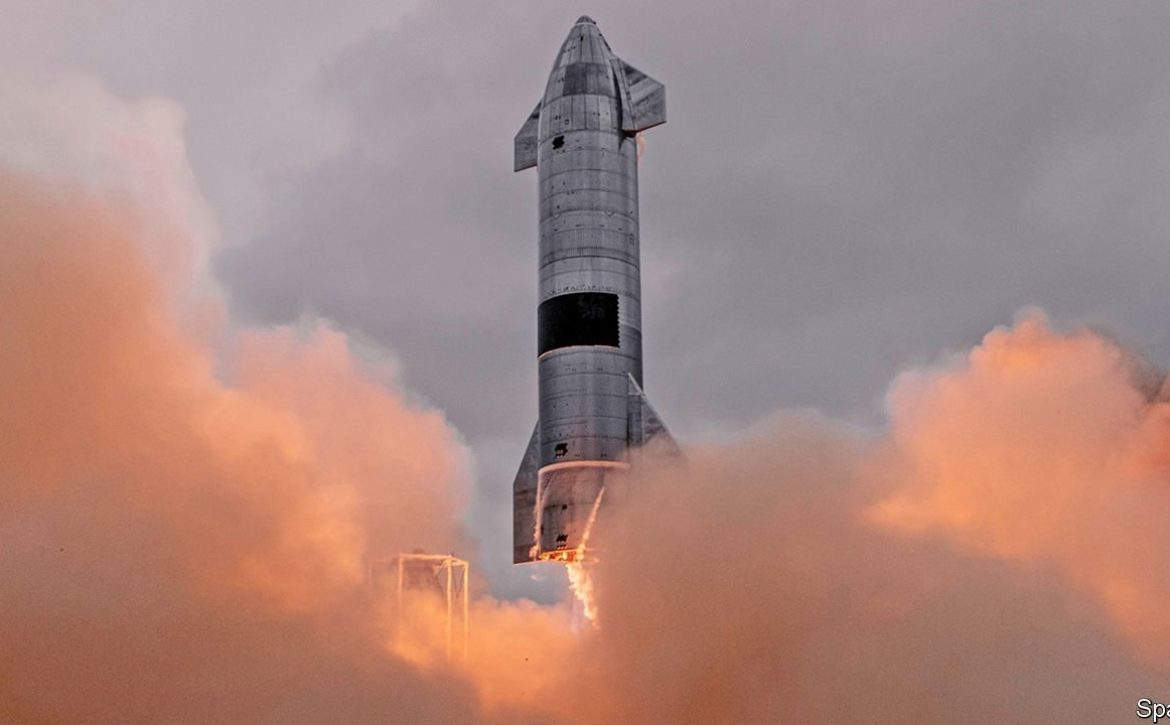
SpaceX, a Tesla for the skies
WHAT GOES up must come down. That was certainly true of bitcoin, a cryptocurrency enthusiastically endorsed by Elon Musk which surged in value in February after Tesla added $1.5bn-worth to its balance sheet. It plunged on May 12th after the carmaker stopped customers using bitcoin to buy its vehicles. Mr Musk worries about the use of fossil fuels to “mine” the cryptocurrency. More gracefully, on May 5th a prototype version of SpaceX’s massive “Starship” rocket—designed to be the biggest since the Saturn V that took the Apollo astronauts to the moon—rose 10km above Boca Chica in Texas, before flying itself back to its launchpad and landing gently on the ground. It was not Starship’s first high-altitude test flight. But it was the first that had ended without a fireball.
It was the latest piece of good news for SpaceX, a rocketry firm founded in 2002 by Mr Musk, who is perhaps better known as the founder of Tesla, an electric-car pioneer. Like Tesla, SpaceX has taken an unloved technology and made drastic improvements, shaking up a complacent industry. While Tesla’s mission—“accelerate the world’s transition to sustainable energy”—is grand, SpaceX’s is even grander. Mr Musk wants to use its cheap rockets to make humanity a “multi-planetary space-faring civilisation” by establishing a colony on Mars. And like Tesla, SpaceX’s…
Read More


